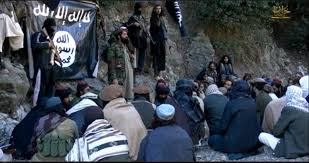
(Credit: pamelagellar.com)
Dozens of people have been killed in clashes between Islamic State militants and Afghan forces as the extremist movement renewed efforts to seize parts of eastern Afghanistan.
Fighters pledging allegiance to the movement, also known as Daesh, attacked police checkpoints in the Kot area of Nangarhar province.
As many as 36 attackers were reported to have been killed in the assaults, with at least another dozen police and civilians also dead from the fighting.
The assault comes just three months after the Afghan president, Ashraf Ghani, said the militant movement had been wiped out in Afghanistan.
Afghan extremist fighters set up an offshoot of the Islamic State in Iraq and Levant (Isil) in 2014 and have since fought both the Government and Taliban to increase their influence.
The US military estimates between 1,000 and 3,000 Isil fighters are in Afghanistan, mostly comprised of disaffected Pakistani and Afghan Taliban, as well as Uzbek Islamists and locals.
Saleem Khan Kunduzi, Nangarhar province governor, said: “There is no doubt that Daesh do not respect anyone.
“They kill people, regardless of whether they’re a child or a woman. They burn down madrasas, mosques and schools.”
Sediq Ansari, the head of Afghanistan’s civil society federation, blamed local leaders for failing to tackle the threat from Islamic State.
He told the Reuters news agency: “They should be accountable for every drop of blood that has been shed in Nangarhar so it becomes a lesson to other officials.”
Isil is also a bitter foe of the Taliban in Afghanistan, which it accuses of lacking Islamic zeal. The US Air Force has begun launching air strikes on its positions in the country. So far this year, between 60 and 80 American air raids have targeted Isil in Afghanistan, including those by drones and strike aircraft.
Isil’s leadership is now believed to have left Nangarhar and moved northwards into the neighbouring Kunar province. That could be the next target if the group has the strength to expand.
